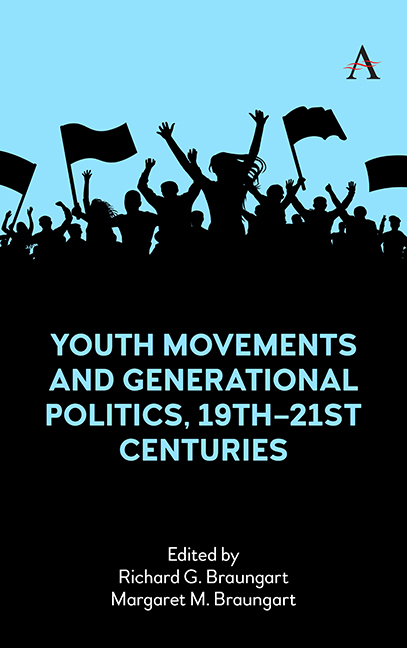5 - Reference Group, Social Judgment, and Student Politics
Published online by Cambridge University Press: 18 November 2023
Summary
Data collected from a sample of 1246 college youth supported the proposition that political reference group and level of ego-involvement with politics partially explain the social judgments of student political activists. Three hypotheses employed to test this proposition revealed that: (1) reference groups are related to the social judgments of their members, such that the more radical the reference group, the closer the agreement within the group and the more restricted the structuring of attitudes among group members; (2) the more extreme the reference group, the more pronounced the assimilation-contrast effect; and (3) the more extreme the reference group, the more explicit the selective perception of student activists.
During the last decade student politics emerged as a major force on campuses throughout the United States. Students were no longer reluctant to join political groups nor did they hesitate to form judgments and voice their opinions over a plethora of social and political issues. The politicization of college life captured the interest of journalists and social scientists alike, including social psychologists concerned with the formation and development of political attitudes and beliefs. The present study is an attempt to evaluate the influence of reference groups and ego-involvement on the structure of political attitudes among college youth.
While numerous studies have been undertaken focusing on the values and beliefs of activist youth (Watts and Whittaker, 1966; Block, Haan, and Smith, 1968; Smith, Haan and Block, 1970; Kerpelman, 1972), Sherif and Sherif (1956, 1967, 1969) argue that there is a need for a “more systematic investigation of the effects of a person's reference group” on social judgment and overt behavior. Reference groups and social judgments are presumed to be related in terms of: (1) the structure of communications concerning issues and their sources; (2) the person's ego-involvement regarding issues; and (3) the person's social participation as a group member (Sherif and Sherif, 1967:132–133). These interactive forces need to be explored further insofar as groups affect the structure of norms and influence the attitudes and behavior of their members.
Reference groups are those to which individuals relate themselves or aspire to relate themselves (Sherif and Sherif, 1969:418). Such groups serve as social or normative anchors and are important sources for the development of attitudes and behavior.
- Type
- Chapter
- Information
- Publisher: Anthem PressPrint publication year: 2023

